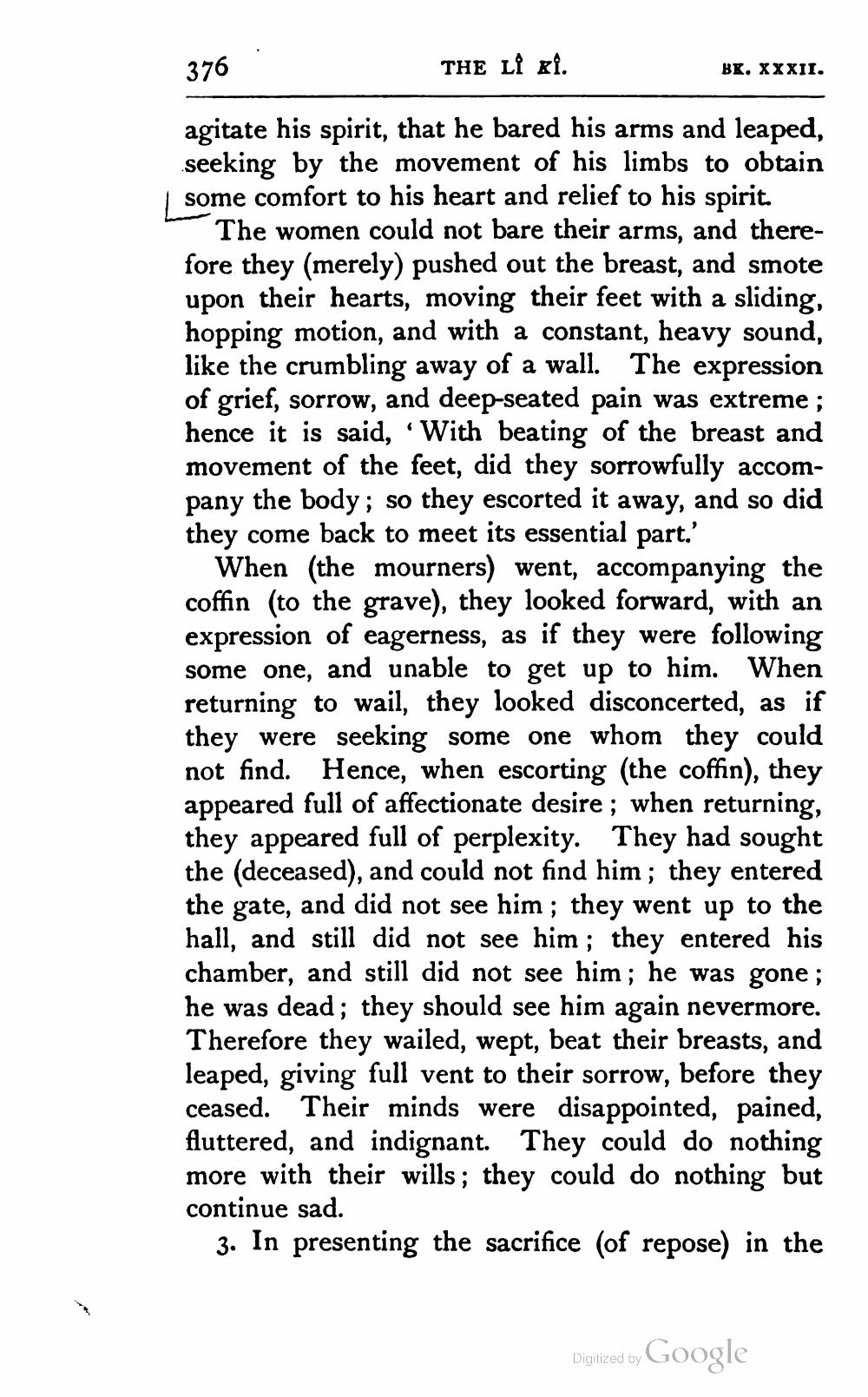________________
376
THE LI KÎ.
agitate his spirit, that he bared his arms and leaped, seeking by the movement of his limbs to obtain some comfort to his heart and relief to his spirit.
The women could not bare their arms, and therefore they (merely) pushed out the breast, and smote upon their hearts, moving their feet with a sliding, hopping motion, and with a constant, heavy sound, like the crumbling away of a wall. The expression of grief, sorrow, and deep-seated pain was extreme; hence it is said, 'With beating of the breast and movement of the feet, did they sorrowfully accompany the body; so they escorted it away, and so did they come back to meet its essential part.'
BK. XXXII.
When (the mourners) went, accompanying the coffin (to the grave), they looked forward, with an expression of eagerness, as if they were following some one, and unable to get up to him. When returning to wail, they looked disconcerted, as if they were seeking some one whom they could not find. Hence, when escorting (the coffin), they appeared full of affectionate desire; when returning, they appeared full of perplexity. They had sought the (deceased), and could not find him; they entered the gate, and did not see him; they went up to the hall, and still did not see him; they entered his chamber, and still did not see him; he was gone; he was dead; they should see him again nevermore. Therefore they wailed, wept, beat their breasts, and leaped, giving full vent to their sorrow, before they ceased. Their minds were disappointed, pained, fluttered, and indignant. They could do nothing more with their wills; they could do nothing but continue sad.
3. In presenting the sacrifice (of repose) in the
Digitized by
Google




